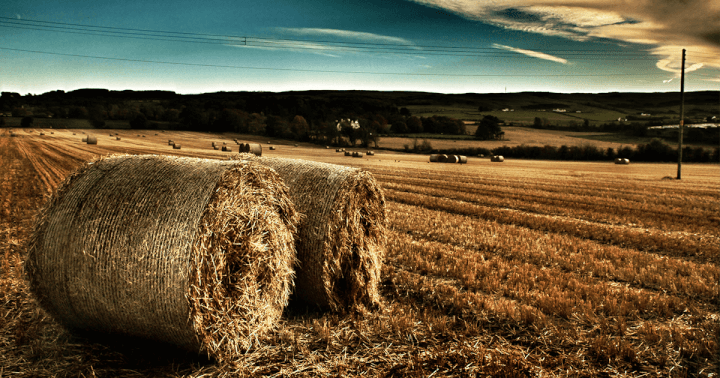
I have no hesitation in saying that I have ever considered the [Electoral College] as the most dangerous blot in our Constitution, and one which some unlucky chance will some day hit.
—Thomas Jefferson, letter to George Hay, August 17, 1823
He who takes pleasure in tracing an etymology.
Two workmen playing, in a café in the South, a silent game of chess.
The potter, contemplating a color and a form.
The typographer who sets this page well though it may not please him.
A woman and a man, who read the last tercets of a certain canto.
He who strokes a sleeping animal. …
These people, unaware, are saving the world.
—Jorge Luis Borges, “The Just,” Selected Poems, 1999
In the autumn of 1813 … [t]he air was literally filled with Pigeons; the light of noonday was obscured as by an eclipse; the dung fell in spots not unlike melting flakes of snow; and the continued buzz of wings had a tendency to lull my senses to repose. …
But I have satisfied myself by long observation that nothing but the gradual diminution of our forests can accomplish their decrease, as they not unfrequently quadruple their numbers yearly and always at least double it.
—John James Audubon, “The Passenger Pigeon,” Birds of America, 1838
“Now I want you to tell me just one thing more. Why do you hate the South?”
“I don’t hate it,” Quentin said quickly, at once, immediately; “I don’t hate it,” he said. I dont hate it he thought, panting in the cold air, the iron New England dark: I dont. I dont! I dont hate it! I dont hate it!
—William Faulkner, Absalom, Absalom! 1936
The rushing amorous contact high in space together,
The clinching interlocking claws, a living, fierce, gyrating wheel …
Upward again, on slow-firm pinions slanting, their separate, diverse flight,
She hers, he his, pursuing.
—Walt Whitman, “The Dalliance of the Eagles,” 1880
The misery of being exploited by capitalists is nothing compared to the misery of not being exploited at all.
—Joan Robinson, Economic Philosophy, 1962
The San Francisco Mountain lies in Northern Arizona, above Flagstaff, and its blue slopes and snowy summit entice the eye for a hundred miles across the desert. About its base lie the pine forests of the Navajos, where the great red-trunked trees live out their peaceful centuries in that sparkling air. The piñons and scrub begin only where the forest ends, where the country breaks into open, stony clearings and the surface of the earth cracks into deep canyons. The great pines stand at a considerable distance from each other. Each tree grows alone, murmurs alone, thinks alone. They do not intrude upon each other. … Each tree has its exalted power to bear.
—Willa Cather, The Song of the Lark, 1915
I have had my films quoted back at me by someone rifling through my underpants, and been asked for selfies by someone swabbing me for explosives.
The last kid who searched me, a young Muslim boy with an immaculate line-beard and goatee, was particularly apologetic.
“Sorry bro. If it makes you feel any better, they search me before I fly too.”
We laughed, not because he was joking, but because he was deadly serious. It was the perfect encapsulation of the minority’s shifting and divided self, forced to internalise the limitations imposed on us just to get by, on the wrong side of the velvet rope even when (maybe especially when) you’re on the right side of it.
—Riz Ahmed, “Typecast as a Terrorist,” The Guardian, September 2016
Every house is a mad-house at some time or other.
—Edith Wharton, “Full Circle,” 1909
old age
level light
evening in the afternoon
love without the bitterness and so
good-night
—Archibald MacLeish, “Definitions of Old Age,” Collected Poems, 1917–82
They pray in the litany as if under enchantment. Their real life is spinning on beneath this apparent one of calm, like the District Railway–trains underground just by—throbbing, rushing, hot, concerned with next week, last week. … Could these true scenes in which this congregation is living be brought into church bodily with the personages, there would be a churchful of jostling phantasmagorias crowded like a heap of soap bubbles, infinitely intersecting, but each seeing only his own. That bald-headed man is surrounded by the interior of the Stock Exchange; that girl by the jeweller’s shop in which she purchased yesterday. Through this bizarre world of thought circulates the recitative of the parson—a thin solitary note without cadence or change of intensity—and getting lost like a bee in the clerestory.
—Thomas Hardy (attributed to Florence Emily Hardy), The Early Life of Thomas Hardy, 1841–1891
A thinking woman sleeps with monsters.
The beak that grips her, she becomes.
—Adrienne Rich, Snapshots of a Daughter-in-Law, 1963
The little black dog runs in his yard.
His owner’s voice arises, stern,
‘You ought to be ashamed!’
What has he done?
He bounces cheerfully up and down;
he rushes in circles in the fallen leaves.
Obviously, he has no sense of shame.
He and the bird know everything is answered,
all taken care of,
no need to ask again.
—Yesterday brought to today so lightly!
(A yesterday I find almost impossible to lift.)
—Elizabeth Bishop, “Five Flights Up,” Geography III, 1977
What is the use of a house if you haven’t got a tolerable planet to put it on?
—Henry David Thoreau, 1860
I love to see, when leaves depart,
The clear anatomy arrive,
Winter, the paragon of art,
That kills all forms of life and feeling
Save what is pure and will survive.
—Roy Campbell, “Autumn,” Adamastor, 1930


